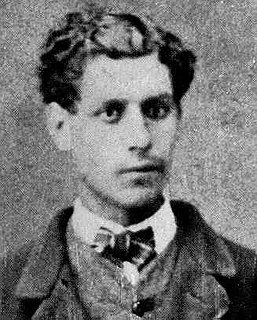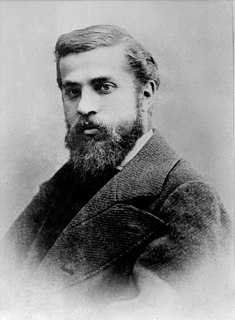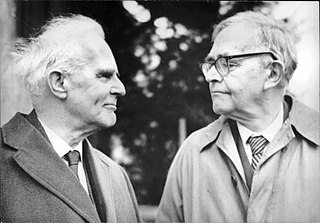A Quote by Jose Ortega y Gasset
We live at a time when man believes himself fabulously capable of creation, but he does not know what to create.
Related Quotes
That it does not matter what a man believes is a statement heard on every side today. ... What he believes tells him what the world is for. How can men who disagree about what the world is for agree about any of the minutiae of daily conduct? The statement really means that it does not matter what a man believes so long as he does not take his beliefs seriously.
That man can destroy life is just as miraculous a feat as that he can create it, for life is the miracle, the inexplicable. In the act of destruction, man sets himself above life; he transcends himself as a creature. Thus, the ultimate choice for a man, inasmuch as he is driven to transcend himself, is to create or to destroy, to love or to hate.
A happy but miserable state in which man finds himself from time to time; sometimes he believes he is happy by loving, then suddenly he finds how miserable he is. It is all joy, it sweetens life, but it does not last. It comes and goes, but when it is active, there is no greater virtue, because it makes one supremely happy.
The meaning of the Sabbath is to celebrate time rather than space. Six days a week we live under the tyranny of things of space; on the Sabbath we try to become attuned to holiness in time. It is a day on which we are called upon to share in what is eternal in time, to turn from the results of creation to the mystery of creation; from the world of creation to the creation of the world.
It is a great good to be given over to the will of God. Then the Lord alone is in the soul, and no other thought, and she prays to God with a pure mind. When the soul is entirely given over to the will of God, then the Lord Himself begins to guide her, and the soul learns directly from God ... A proud man does not with to live according to the will of God. He likes to direct himself, and does not understand that man does not have enough understanding to direct himself without God.








































